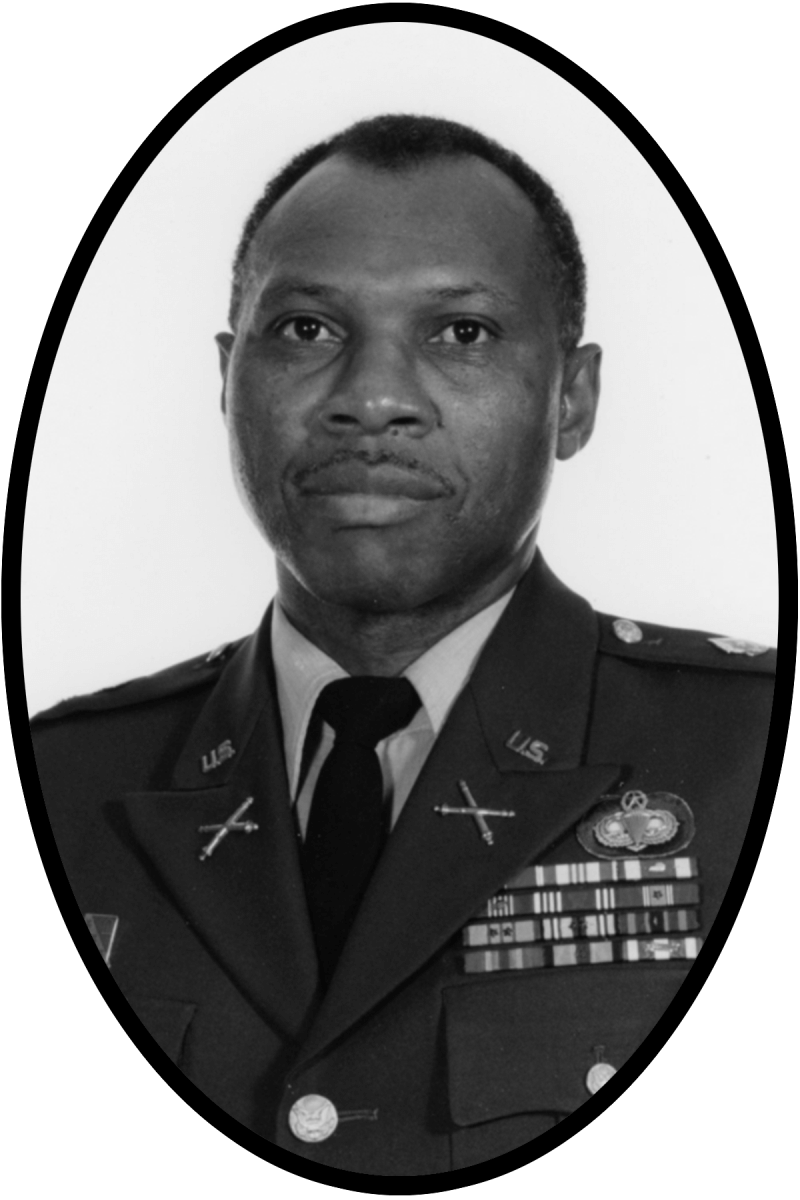COL Julius C. Coats , U.S. Army
Inducted 2025
 A native of Alabama, Julius Coats entered the Field Artillery as an enlisted soldier in 1962. After over six years of enlisted service, which included service in Korea, Germany, and Vietnam as a gunner and Platoon Sergeant, he graduated from the Field Artillery Officer Candidate School in 1969. After OCS, he joined the 82nd Airborne Division Artillery in 1969, where he served as a Fire Support Officer, Assistant Battalion S-3, Firing Battery Commander, and the Headquarters Battery Commander, all in the 1st Battalion (Airborne), 320th Field Artillery Regiment. He next served as an Assistant Professor of Military Science at Southern University. Major Coats served as the S-3 of the 1st Battalion, 38th Field Artillery in the 2nd Infantry Division in Korea. After graduating from the Armed Forces Staff College, he served in Germany with the Headquarters, European Command. In 1984, he served as the Executive Officer of the 18th Field Artillery Brigade before being promoted to Lieutenant Colonel and command of the Army's only 155mm Airborne Field Artillery Battalion, the 1st Battalion (Airborne), 39th Field Artillery. Following his command, Lieutenant Colonel Coats again served as the brigade Executive Officer and then the Chief of Operations, G-3, XVIII Airborne Corps, where he participated in the humanitarian effort in Florida following Hurricane Andrew, as well as a no-notice deployment to Honduras for Operation Golden Pheasant. After attending the Army War College, where he earned his Master's Degree, he returned to Fort Bragg to work for the Army Readiness Group Bragg and then the Director of Operations, G3, XVIII Airborne Corps. While serving with the Corps, Colonel Coats was deployed to Saudi Arabia for the First Gulf War. In 1993, for his final assignment, Colonel Coats was selected to serve on the Chief of Staff of the Army's Louisiana Maneuver Task Force. Colonel Coats served with distinction in the United States Army for over 30 years. Following retirement, he worked for the Oak Ridge National Laboratory and a major defense company, collaborating with the Army Training and Doctrine Command. He has also worked with Gideon International and his local church, as well as devoted a significant amount of his time to ROTC units. The majority of Colonel Coats’ career was spent leading and coaching soldiers. He was known in the Army and later as a person of great conviction willing to coach, teach, mentor, and support anyone regardless of race, creed, gender, or religious beliefs. Julius Coats has served his community, the Army, and our Nation in a positive manner. His impact will long be remembered.
A native of Alabama, Julius Coats entered the Field Artillery as an enlisted soldier in 1962. After over six years of enlisted service, which included service in Korea, Germany, and Vietnam as a gunner and Platoon Sergeant, he graduated from the Field Artillery Officer Candidate School in 1969. After OCS, he joined the 82nd Airborne Division Artillery in 1969, where he served as a Fire Support Officer, Assistant Battalion S-3, Firing Battery Commander, and the Headquarters Battery Commander, all in the 1st Battalion (Airborne), 320th Field Artillery Regiment. He next served as an Assistant Professor of Military Science at Southern University. Major Coats served as the S-3 of the 1st Battalion, 38th Field Artillery in the 2nd Infantry Division in Korea. After graduating from the Armed Forces Staff College, he served in Germany with the Headquarters, European Command. In 1984, he served as the Executive Officer of the 18th Field Artillery Brigade before being promoted to Lieutenant Colonel and command of the Army's only 155mm Airborne Field Artillery Battalion, the 1st Battalion (Airborne), 39th Field Artillery. Following his command, Lieutenant Colonel Coats again served as the brigade Executive Officer and then the Chief of Operations, G-3, XVIII Airborne Corps, where he participated in the humanitarian effort in Florida following Hurricane Andrew, as well as a no-notice deployment to Honduras for Operation Golden Pheasant. After attending the Army War College, where he earned his Master's Degree, he returned to Fort Bragg to work for the Army Readiness Group Bragg and then the Director of Operations, G3, XVIII Airborne Corps. While serving with the Corps, Colonel Coats was deployed to Saudi Arabia for the First Gulf War. In 1993, for his final assignment, Colonel Coats was selected to serve on the Chief of Staff of the Army's Louisiana Maneuver Task Force. Colonel Coats served with distinction in the United States Army for over 30 years. Following retirement, he worked for the Oak Ridge National Laboratory and a major defense company, collaborating with the Army Training and Doctrine Command. He has also worked with Gideon International and his local church, as well as devoted a significant amount of his time to ROTC units. The majority of Colonel Coats’ career was spent leading and coaching soldiers. He was known in the Army and later as a person of great conviction willing to coach, teach, mentor, and support anyone regardless of race, creed, gender, or religious beliefs. Julius Coats has served his community, the Army, and our Nation in a positive manner. His impact will long be remembered.
